Iran Denies Nuclear Talks Can Be Finalized In Hours
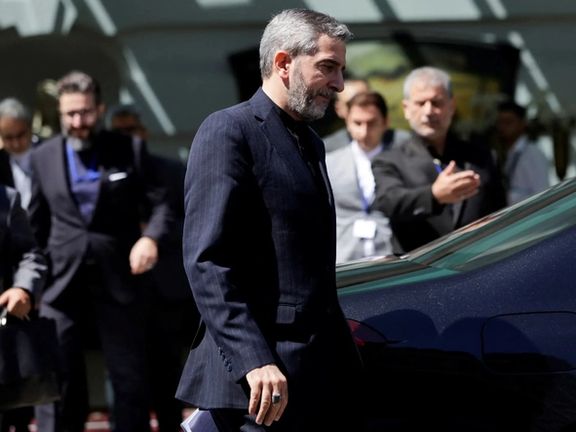
An Iranian foreign ministry official has rejected reports that the text of an agreement to salvage the 2015 nuclear deal could be finalized in the coming hours.

An Iranian foreign ministry official has rejected reports that the text of an agreement to salvage the 2015 nuclear deal could be finalized in the coming hours.
The Iranian government’s official news website IRNA quoted the unnamed official as saying that the talks are still underway on some important issues and that “we are not yet at a stage where we can talk about a finalized deal.”
“Given the continuation of discussions on some remaining important issues, we’re not yet at a stage to finalize the text. Iran has presented its constructive views to the other party so as to move forward and the result is up to their political decision,” the source said. “We believe that Vienna Talks can be concluded soon provided that the other party makes an appropriate decision. But we are not at that stage yet.”
He made the remarks in reaction to a Sunday report by The Wall Street Journal that cited the European Union's coordinator Enrique Mora as saying the negotiations to restore the JCPOA (the Joint Comprehensive Plan of Action) are close to completion but it remained unclear whether Tehran will accept the final deal. The text of a deal could be closed in the coming hours, Mora had said.
However, Iran must still decide whether to set aside its demand that the nuclear deal can only be revived if a multiyear United Nations’ atomic agency safeguard probe into its nuclear program is closed, the report added, noting that “Several Western diplomats said Sunday that Tehran has doubled down on this condition in the past few days of talks and there is no agreement on the issue.”
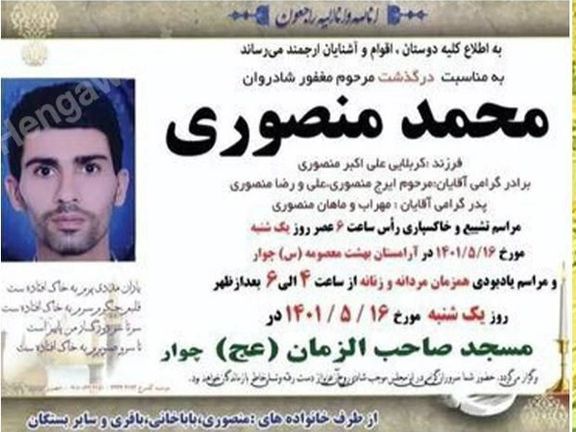
Amid a dire economic situation in Iran that has been worsening in recent months, another worker committed suicide due to dismissal from his workplace.
Hengaw Organization for Human Rights reported on Monday that Mohammad Mansouri, a 32-year-old father of two, hanged himself in his home in the western province of Ilam on Sunday, August 7.
The report said that "livelihood problems" were the reason behind his death and that he had been working at Chovar petrochemical company for several years before he was fired a few months ago.
Workers of petroleum and petrochemical companies are especially vulnerable due to their hard working conditions and low wages.
A union for contract workers of the oil sector announced on Saturday that 35 workers of Abadan refinery in southern Iran passed out due to the heat, and were taken to hospital. Despite the temperature rising to more than 50 degrees Celsius – about 122 in Fahrenheit scale – in the southern parts of the country, where most of the oil and gas plants are located, subcontractors for the government refuse to stop work even for a few hours.
The incidents occurred less than a week after an Iranian war veteran injured during the eight-year conflict with Iraq died after setting himself on fire due to financial hardship in the Kurdish-majority city of Sonqor in Western Iran. According to reports, it was the ninth case of self-immolation due to livelihood problems and vocational issues in the past 70 days.

An IRGC-linked news agency has slammed a former diplomat for suggesting that Iran should balance its foreign policy by having relations with both the US and Russia.
Nasser Nobari, a former Iranian diplomat, told President Ebrahim Raisi in an open letter that Iran’s politico-economic interests would be best secured if the country adopted a foreign policy of “positive equilibrium and independent multilateralism” like India, that is, to maintain good relations with both The United States and Russia.
In a commentary entitled ‘Balanced Foreign Policy or Positive Balance Policy’ Saturday, Fars news agency slammed Nobari for suggesting the adoption of ‘positive equilibrium’ as the most suitable approach in Iran's foreign policy rather than the so-called ‘balanced foreign policy’ adopted by the government which excludes any relations with the US and focuses on relations with neighboring countries and the ‘East’.
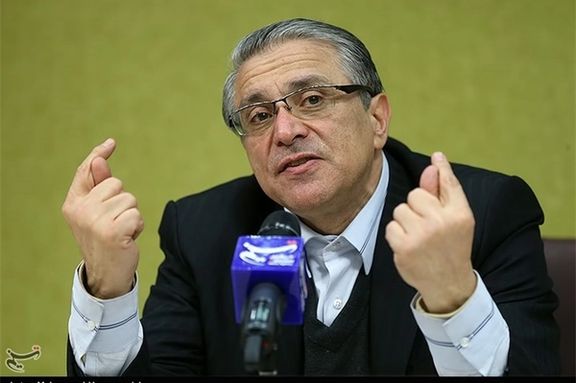
“Does the said person believe … that the US is changing its Middle Eastern policy and wants to entice Iran [to have diplomatic relations] by increasing rapport with Iran and reliance on complex diplomacy towards the Zionist regime, Arab countries, and Iran?” the commentary asked.
It went on to stress that “the relationship between the World Arrogance (Western powers) led by the United States with the Islamic Republic is a zero- sum game … and will definitely not change”.
The Fars commentary went on to argue that relations with the United States would only be possible if its political system “collapses and gives way to an anti-imperialist or at least a non-Imperialist system”.
The policy of relying on Asia or the East, particularly China and Russia, was promulgated by Supreme Leader Ali Khamenei in 2018, with the catchphrase, “Looking East”.
"We should look East, not West. Pinning our hope on the West or Europe would belittle us as we will have to beg them for favors and they will do nothing," Khamenei said in a speech in October 2018.
In his letter, Nobari who served as Iran’s ambassador to the Soviet in 1980s said the recent visit of Russian President Vladimir Putin to Iran, and the US envoy Robert Malley’s suggestion to Iran not to “opt for a position of relative dependency on Russia” indicate that both superpowers are eager to entice the Islamic Republic to choose them over the other.
“It is the first time in the past three centuries that Iran has and can make a choice and it's the superpowers that are competing with each other to bring Iran to their fold rather than dictating or imposing their decisions on Iran as they did in the Tehran Conference [during the 2nd World War],” he wrote.
The former diplomat also warned that not using this opportunity could constrain Iran’s influence in the international community and backfire as a threat.
A similar view was expressed recently by former senior conservative lawmaker, Ali Motahari, who said ‘Looking East’ should not be tantamount to distancing Iran from the West. “We need to maintain relations with both sides and take advantage of the rivalry between them. However, cutting all ties with the West would not serve the nation's interests," he said in an interview with Khabar Online.
The conservative Jomhouri Eslami newspaper on August 4 criticized the foreign ministry spokesman Nasser Kanaani for being overjoyed by the recent quarrels between Beijing and Washington over Nancy Pelosi’s visit to Taiwan and taking sides with China.
“How does a neutral policy harm us in such disputes?”, an editorial in the newspaper asked. “Doesn't Neither East nor West mean not to take sides in the disputes between two domineering powers?”
‘Neither East nor West’ was the foreign policy approach promulgated by the founder of the Islamic Republic Ayatollah Ruhollah Khomeini and was Iran's official foreign policy motto until ‘Looking East’ took its place.

A former senior lawmaker in Tehran says a US guarantee about its commitment to the 2015 nuclear agreement with Iran is the master key to unlock a new deal.
Heshmatollah Falahatpisheh told the moderate conservative news website Khabar Online in Tehran on Sunday, August 7, that it is only a US guarantee to lift the sanctions, and a guarantee that there would be no impediment to Iran’s oil exports, other trade and foreign investments .
The former conservative lawmaker who headed the foreign policy and national security committee of the parliament added that it is only with such a guarantee that a revived version of the JCPOA could be signed and put into effect.
According to Khabar Online, an agreement is still not within reach despite all the hopes expressed by Iranian and US officials at different times. Meanwhile, despite conflicting statements by Iranian officials, Iran's former nuclear chief Fereidoun Davani has said, "Iranian negotiators have so far withheld from the nation and the parliament what their preconditions for the revival of the JCPOA are," and that everything in the press about this is sheer speculation.
Falahatpisheh said that "Iran has spent a lot of money on developing its uranium enrichment infrastructure and shutting it down will be a waste. So, Iran deserves a bigger concession if it is to accept to limit its nuclear program at this stage. This bigger concession could be lifting the sanctions and guaranteeing the implementation of the resulting agreement."
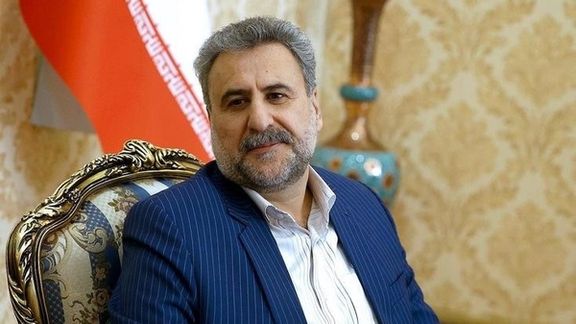
He said that US President Joe Biden has access to five different tools to guarantee an agreement. These tools include an executive order that will allow him to circumvent possible opposition at the Congress. He added that such a guarantee should make sure that any new agreement signed after the revival of the JCPOA would not be subjected to new sanctions.
He went further by saying that US Presidents can do anything if pressured but did not say how Iran can exert that pressure on Biden. Meanwhile, Falahatpisheh did not respond to Khabar Online's question about whether Iran would be ready to modify its preconditions if the US president gives Tehran the guarantees it wants.
Yet the Iranian President, Ebrahim Raisi may have another idea about a guarantee. His deputy chief of staff for political affairs Mohammad Jamshidi wrote in an August 5 tweet: "In all recent telephone conversations between President Raisi and the Presidents of France, Russia and China, it was his firm position that ONLY when the so called Safeguard Issues is resolved and closed, can the final agreement be achieved."
Iranian officials have often also raised the question of receiving foreign investments, while some Iranian commentators have pointed out that Western governments cannot force or convince private companies to invest in a country if they deem the prevailing conditions as risky.
Several Khabar Online readers expressed concern in the comments section about whether it is safe to allow the Iranian government to receive billions of dollars if an agreement is reached. They said that eventually the government would channel the funds to its regional proxy groups.
Others said they were worried that some corrupt officials would embezzle released assets. Several other readers commented that the US government is not trustworthy, and an agreement made with the current government could be torpedoed by the next US administration.
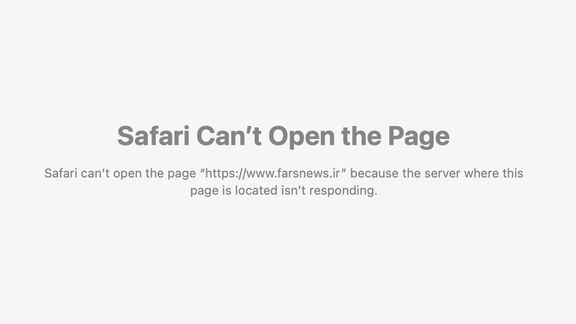
The website of Fars News Agency, a hardliner Iranian media outlet affiliated with the Revolutionary Guard, has been hacked allegedly by an Israeli group of hackers.
The group, named "Army of Thieves", claimed credit for the cyberattack Sunday evening.
The IRGC-affiliated webpage is still down when pinged from abroad following the denial-of-service attack (DoS attack), in which the perpetrator seeks to make a machine or network resource unavailable to its intended users by temporarily or indefinitely disrupting services of a host connected to a network.
The hacking group was responsible for other attacks on Iranian organizations, including the website of Iran’s Islamic Azad University.
In June, Israel said an IRGC cyber unit called “Shahid Kaveh” conducted research to damage ships, gas stations and industrial plants in several countries including Britain, the US, France and Israel.
Defense minister Benny Gantz said that Israel -- which is widely believed to have waged cyber war against Iran's nuclear facilities and other infrastructure -- may retaliate physically against enemy hackers.
Iran has been repeatedly accused of cyberattacks against the West, Israel and rival Arab countries in the Middle East.
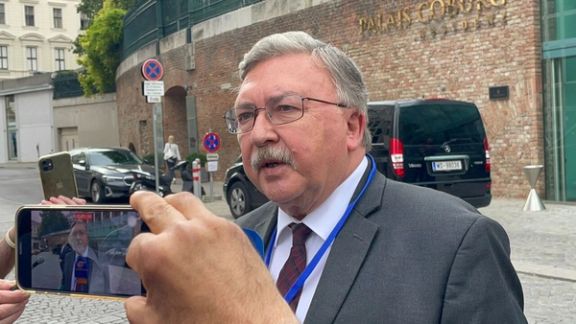
Diplomats engaged in Iran nuclear talks in Vienna sent conflicting messages on Sunday regarding possible progress to reach an agreement over reviving the 2015 deal.
While Russia’s ambassador Mikahil Ulyanov expressed optimism, the US envoy Rob Malley was quoted as voicing disappointment, and Tehran urging Washington to be flexible.
Indirect talks between Iran and the United States to save the 2015 pact resumed in Vienna on Thursday after 16 months of negotiations without reaching a deal.
During a Sunday phone call with UN Secretary General António Guterres, Iranian Foreign Minister Hossein Amir-Abdollahian said that Supreme Leader Ali Khamenei's fatwa (religious decree) on prohibition of using nuclear weapons makes it clear to everyone that nuclear arms have no place in Iran's doctrine and are against its policy and beliefs.
Other Iranian officials, however, have said that Khamenei may be requested to change his fatwa and strategy on the prohibition of producing nuclear weapons. "We will ask Supreme Leader Ali Khamenei to change his fatwa and strategy on the prohibition of producing nuclear weapons if the enemies of the Islamic Republic continue their threats," Iranian lawmaker Mohammad-Reza Sabbaghian Bafghi said on August 2.
Amir-Abdollahian also called on the UN nuclear watchdog, the IAEA to technically resolve the remaining issues regarding Iran's nuclear activities before 2003, and "distance itself from non-constructive political issues".
IAEA has discovered unexplained traces of uranium at three sites in Iran used for secret research and development prior to the discovery of the country’s nuclear program. The watchdog says that so far Tehran has not convincingly explained why there was uranium in these sites.
Amir-Abdollahian went on to repeat Iran’s public posture that the success of indirect talks between Tehran and the United States depended on flexibility from the American side. “We are serious about clenching a strong and durable agreement and the negotiations are now going on in Vienna with seriousness. Of course, the outcome of this issue depends on whether the United States wants an agreement to be reached [and] whether the US shows necessary resilience and realism in practice.”
Washington and its European allies say that they have made a reasonable offer and the onus is on Tehran to make a decision.
Also on Sunday, Russia’s chief negotiator Mikhail Ulyanov expressed hope about agreement in the Vienna talks, saying that there has been “progress” on resolving safeguards-related issues but “it has not been fully settled.”
“They are sensitive, especially for Iranians and Americans. I cannot guarantee, but the impression is that we are moving in the right direction, and the number of unresolved issues is minimal. Just three or four and some of them are almost settled… We’re talking about days, not weeks… I will not be surprised if we finish our exercise successfully very soon,” he told reporters outside Vienna’s Palais Coburg.
“We stand 5 minutes or 5 seconds from the finish line,” Ulyanov said, repeating the exact wording that he had used in February.
Enrique Mora, the European Union’s top negotiator, also said he is “absolutely” optimistic about the talks’ progress so far. “We are advancing, and I expect we will close the negotiations soon,” he added.
According to Iran International’s correspondent Ahmad Samadi at the venue of the talks in Vienna, US Special Envoy for Iran, Robert Malley, has reportedly told one of the participating diplomats at the talks that he is not hopeful about this round of the negotiations. Malley, however, has not made any comments to reporters during the ongoing round.
"Unlike what certain Western media reported, none of the previous outstanding issues of Vienna Talks has been removed from Iran delegation's agenda, and the ideas presented by Iranian officials have been raised in the talks," said Nour News, a website affiliated with the secretary of Iran's Supreme National Security Council (SNSC), Ali Shamkhani.
An adviser to Iran’s nuclear negotiating team said on Saturday, August 6, that some progress was made in Vienna, but issues remain and chances for an agreement is 50-50. Mohammad Marandi told the Arabic Al Mayadeen television, “I don’t know if we will reach an agreement, but the chance is 50 percent.” He stressed that the remaining issues are between Iran and the United States and “there are no differences with Europe or Russia.”